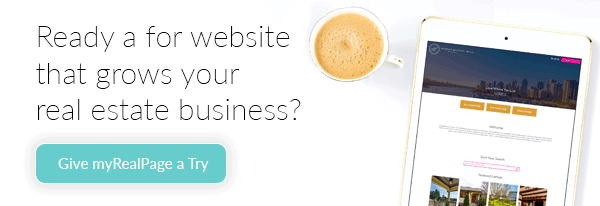Real Estate Door-Knocking today: Dos and Don’ts

Door-knocking today? Isn’t that a bit… old school?
We get the skepticism. And sure, it is a bit old school. But that’s why it still works.
Going door to door shows commitment, tenacity and friendliness that can’t be replicated by web ads or email marketing.
Real estate is all about relationships and a connection to the local market — and door-knocking exemplifies both.
Of course, there are ways to do it well. If you’re going to make it a part of your lead generation strategy, you need these tips.
Keep reading for the top dos and don’ts for real estate door-knocking in today’s day and age.
What is Door Knocking?
Door knocking in real estate is a traditional marketing strategy where realtors go door-to-door in a neighborhood to introduce themselves, share information about the local market, and see if homeowners are thinking about selling. It’s a personal way to connect with potential clients, build relationships, and generate leads.
Realtors often bring flyers, business cards, or market reports to leave behind, even if the homeowner isn’t interested right away. The goal is to start conversations, establish trust, and stay top of mind for when the homeowner is ready to buy or sell.
Do Choose Your Neighbourhoods Wisely
If you randomly select areas for door-knocking, you’ll end up with sore feet and not much to show for it.
To get the most bang for your buck time, you need to target neighbourhoods strategically. When deciding where to door-knock, consider:
- The ratio of homeowners in the area. You want to be reaching the decision-makers, not their tenants.
- Your familiarity with the neighbourhood. It’s not a deal-breaker if you haven’t done much business in the neighbourhood, but past sales on the street (or the next one over) go a long way in proving your expertise and capability.
- Demographics. Is it a neighbourhood in transition, where empty nesters are slowly leaving and young families are moving in? Perfect — you can catch homeowners when they’re already thinking about listing.
Don’t Knock Outside of Key Hours
Here’s the thing about door-knocking: it can be uncomfortable and inconvenient. Like when you consider when it should take place.
While it may be convenient for you to go door to door around lunchtime during the week, that’s not when you’re likely to catch people at home.
To maximize your chances of the door opening, you need to time your door-knocking strategically. That’s likely between 4 and 6 p.m. during the week, and late mornings or early evenings on the weekends.
Do Have a Script Prepared
When a door opens, real estate agents have mere seconds to convince the homeowner not to close it. That’s why even the most confident improvisers should have a script prepared.
Your script doesn’t have to be long; it just needs to catch their attention. You need to say something that intrigues them and leaves them wanting to hear more.
Here are a few sample door-knocking scripts to work from:
My name is [your name] and I’m a real estate agent in the area. I wanted to pop by because I have a listing just around the corner that recently sold for [selling price] after multiple offers, and I’ve had several people ask me if I have similar listings nearby. Your house is stunning. Considering the demand, I’m wondering if you’ve thought about selling in the near future?
Sorry to bug you. My name is [your name] and I’m a real estate agent in the area. I have a couple of clients right now who are looking for a home just like yours, in this neighbourhood. If there was an interested and committed buyer, would you consider selling?
Hi! My name is [your name] and I’m a real estate agent in the area. I’m sorry to interrupt your day, but I just had to tell you how much I love your house. Your [a feature, such as the view or garden] is amazing. Your place really stands out on the street. Anyways, I just wanted to drop off some information in case you’ve been thinking about putting your house on the market. I know it would be in high demand.
Looking for other real estate scripts? Check out these open house follow-up scripts, real estate email templates and a must-have real estate elevator pitch template.
Don’t Push or Prod – Door to Door Real Estate
Some real estate situations call for a little nudging or urging.
Door-knocking is not one of those situations.
Going door to door is slightly more invasive than other forms of real estate lead generation. If someone has opened their door to you and decides they’re not interested, gracefully thank them for their time and move on.
If you push back or interject, even a little bit, you risk damaging your reputation. Not worth it.
Do Leave Something Behind
Not every homeowner is going to answer their door. In fact, a big percentage won’t.
Whether they’re not home or just not interested in interacting with a stranger, chances are you’ll be knocking on a lot of doors that just don’t open.
Don’t let those closed doors become missed opportunities. Make sure you have something to leave behind — like a door hanger, flyer or postcard — so that the homeowner knows you dropped by and can reach out (or at least check your website) if they are interested in more information.
Your leave-behind should include your website and contact information, a short bio, a testimonial (or a few recent highlights or career stats) and a call-to-action, such as a free consultation or evaluation or an invitation to check out sold data on your website.
Don’t Quit
Real estate door-knocking takes gumption and thick skin. You’ll likely be treated rudely at times. You’ll likely feel embarrassed or nervous. And you might not get one door opened on an entire street.
It can be disheartening. But like other forms of lead generation, door-knocking takes time in order to produce results.
Be patient, and strategically choose other neighbourhoods and streets to try if your first couple haven’t resulted in any activity.
Do you use door-knocking as a form of lead generation? What’s your best tip?
Last Updated on March 3, 2025 by myRealPage



